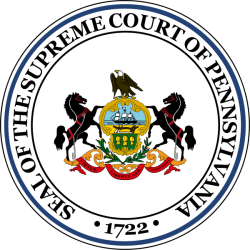Pennsylvania Supreme Court Issues Seminal Opinion in Biosolids Litigation

In an earlier post, I provided background on a significant case to both farmers and the wastewater treatment plant community in Pennsylvania – Gilbert v. Synagro – addressing the land application of biosolids under Pennsylvania’s Right to Farm Act (“RTFA”). In this case, over thirty (30) landowners adjacent to a 220-acre farm in York County, where biosolids were used as a fertilizer, filed a lawsuit alleging that the biosolids activities constituted, among other things, a nuisance. In addition to the farm, two Synagro corporate entities who are engaged in the businesss of recycling biosolids, were named as defendants in the litigation. In 2005, Synagro obtained a state permit to provide the farm with biosolids. As discussed, the Pennsylvania Supreme Court agreed to hear an appeal from a decision of the state Superior Court addressing the issue of whether the land application of biosolids is considered a normal agricultural operation, which would protect the farm from a nuisance suit under Pennsylvania’s RTFA.
By way of background, the legislative policy underlying the RTFA is to limit “the circumstances under which agricultural operations may be the subject matter of nuisance suits and ordinances.” In a unanimous decision, the Supreme Court reversed the Superior Court, finding that the aforementioned legislative policy “cannot be achieved unless the definition of ‘normal agricultural operation’ is read expansively, taking into account new developments in the farming industry.” The Supreme Court further stated that “[t]he fact that biosolids use is not specifically mentioned in the RTFA’s definition is not determinative, as the definition is broadly drafted, aimed at protecting farms now and in the future; enumerating specific activities would render the definition outdated as farming technology progresses.” Therefore, the Supreme Court ruled that the trial court properly held that biosolids application falls within the RTFA’s definition of “normal agricultural operation,” which barred the aforementioned nuisance claim.
Gilbert v. Synagro represents the first state decision in the United States addressing the issue of whether the land application of biosolids falls within the definition of normal farming activities in a state right to farm law. While the decision of the Pennsylvania Supreme Court is binding only in Pennsylvania, it may be persuasive to courts in other states addressing a similar issue under their respective right to farm laws. It is worth noting, however, that, although the decision was unanimous, a concurring opinion by Justice Saylor may bear close watching in the future. Justice Saylor noted that, if the “manner in which a farming practice is carried out deviates substantially from the norm and has unusual adverse effects upon neighboring properties, at some point that particular method of implementing the practice should be viewed as a distinct practice whose agricultural normalcy should be independently evaluated.” Justice Saylor further noted that he “would not rule out the possibility that an evidentiary record in a future dispute could support the concept that the use of certain identified odor-control practices is necessary for a particular application of biosolids to qualify as ‘normal’ and, thus, to fall within [the] protective scope [of the RTFA].”
Steve Hann filed an amicus brief with the Pennsylvania Supreme Court in support of Synagro and the farming entities on behalf of the Pennsylvania Municipal Authorities Association and the National Association of Clean Water Agencies. He is the East Region Solicitor for the Pennsylvania Municipal Authorities Association.
Featured Posts
-
*** UPDATE *** Chesapeake Bay TMDL
February 29, 2016 -
United States Supreme Court to Consider Whether to Hear Challenge to Chesapeake Bay TMDL
February 25, 2016 -
Pennsylvania Water Regulations to be Amended
February 22, 2016
